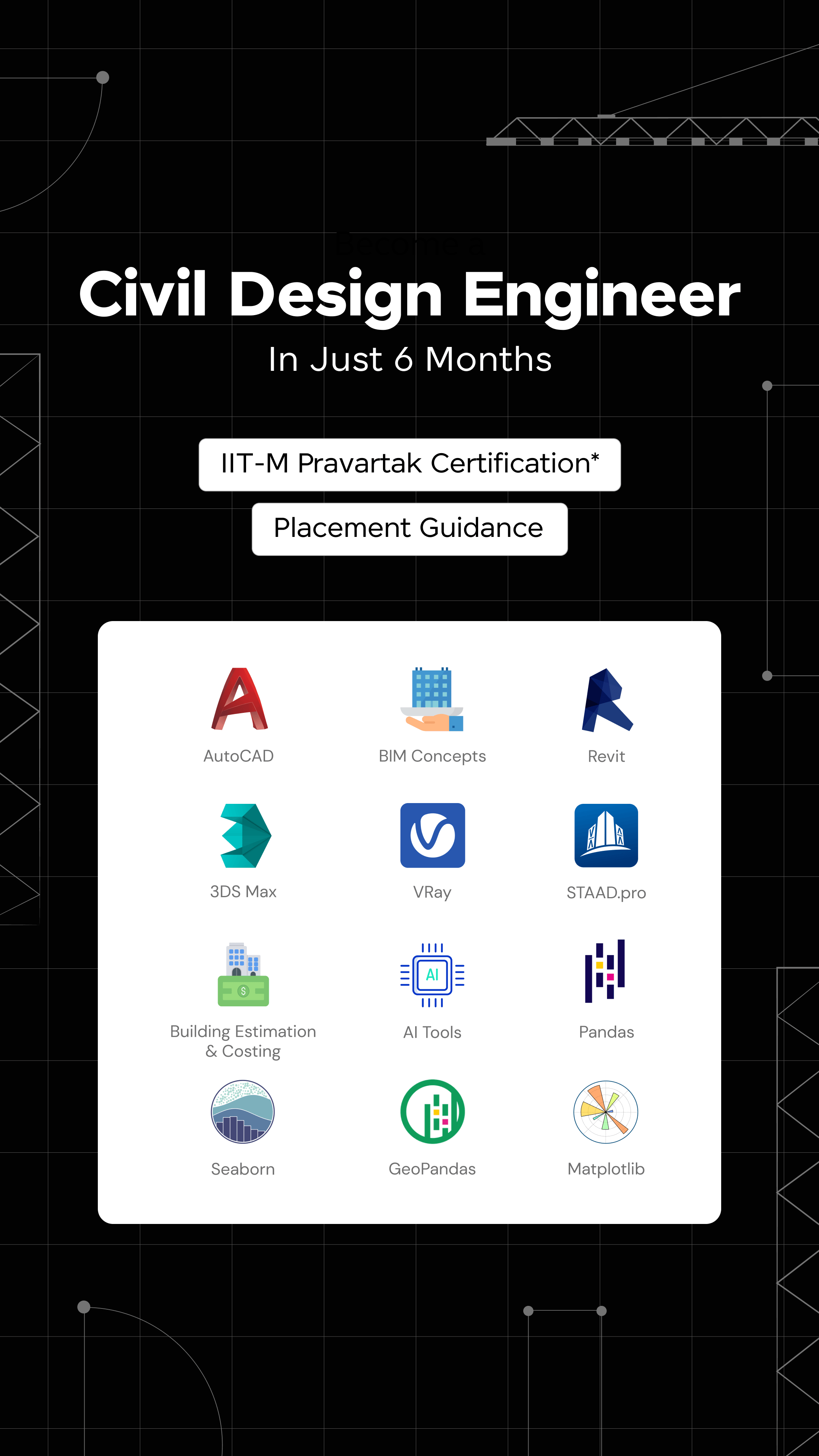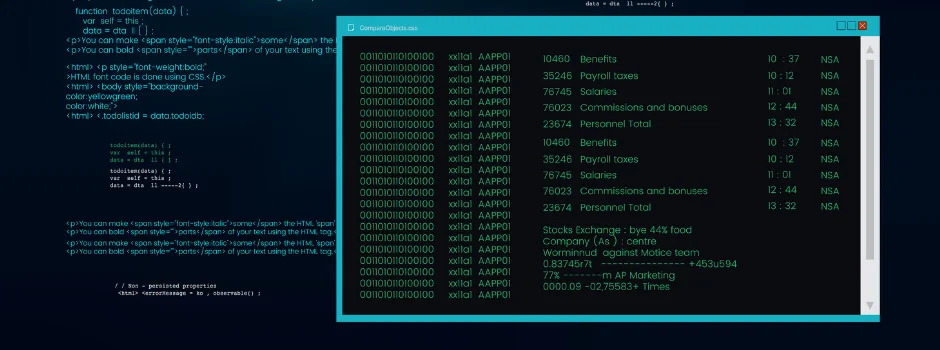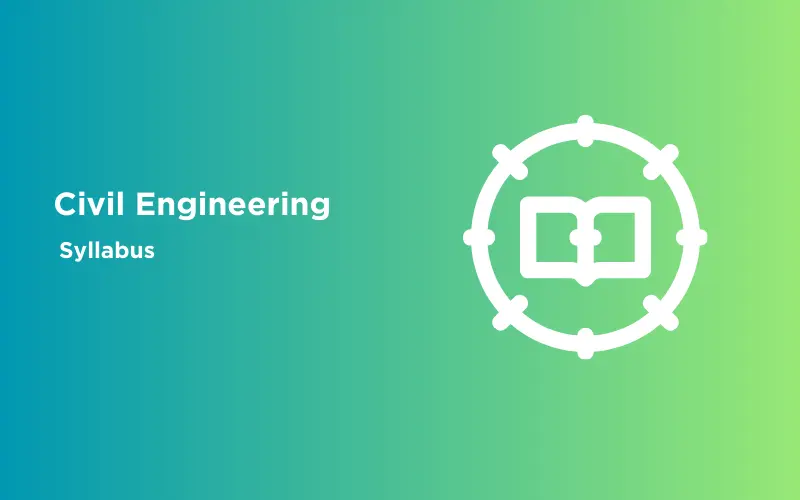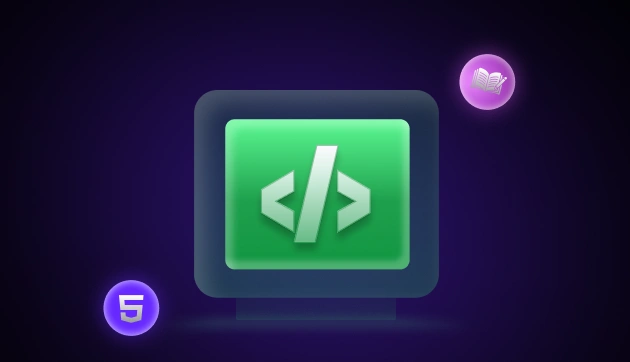
Civil engineering is all about making the world around us work better. It’s the job of civil engineers to build things like tall buildings, roads, bridges, and water systems to help our communities run smoothly. If you’ve ever wondered how these amazing structures are made and want to be a part of creating them, you’re in the right place!
But, how do you begin? With so much information out there, it can be confusing to figure out the best ways to learn civil engineering. Don’t worry! In this blog post, we’ll show you the best ways to learn civil engineering. Whether you’re in high school, college, or already working, we’ve got something for you.
In the upcoming sections, we’ll explore different ways to learn civil engineering. From going to school at famous universities to taking online classes, from reading books that explain everything to watching easy-to-understand videos on YouTube, from joining groups of civil engineers to using free learning materials – we’ve got it all covered.
So, if you’re excited to start your journey into the world of civil engineering, keep reading. Learning about civil engineering can be fun, and we’ll help you get started. Let’s begin this adventure together!
Table of contents
- Educational Institutions and Online Courses for Civil Engineering
- Benefits of Enrolling in Civil Engineering Programs at Universities and Colleges
- Reputable Institutions Known for Their Civil Engineering Programs
- Availability of Online Courses
- Books and Textbooks for Civil Engineering
- YouTube Channels and Video Lectures for Civil Engineering
- Professional Organizations and Journals
- Access to Journals, Research Papers, and Publications
- Networking and Professional Development
- Advocacy and Representation
- Knowledge Sharing and Collaboration
- Stay Informed and Adapt
- OpenCourseWare and Educational Websites
- OpenCourseWare Platforms
- Educational Websites
- Forums and Online Communities
- Software and Tools for Civil Engineering
- Conclusion
- FAQs
- What are the key subjects I should focus on when learning civil engineering?
- Is it necessary to enroll in a formal university program to learn civil engineering, or can I learn it through online courses and self-study?
- What software tools are essential for a civil engineering student to learn, and where can I find resources to master them?
1. Educational Institutions and Online Courses for Civil Engineering

In your quest to become a skilled civil engineer, one of the first choices you’ll encounter is whether to pursue formal education at universities and colleges or take advantage of online courses. Both options offer unique benefits, and your choice may depend on your circumstances and learning preferences.
Benefits of Enrolling in Civil Engineering Programs at Universities and Colleges
1. Universities and colleges provide structured programs that cover all aspects of civil engineering. You’ll gain a deep understanding of foundational principles and specialized fields like structural engineering, transportation engineering, and environmental engineering.
2. Many institutions offer practical lab sessions and opportunities to work on real-world projects, giving you valuable hands-on experience. This practical knowledge is essential for your future career.
3. Universities and colleges provide an excellent environment for networking. You’ll meet professors, fellow students, and industry professionals who can become valuable contacts throughout your career.
4. Graduating from a reputable institution adds credibility to your resume. Employers often value degrees from well-known universities and colleges.
Reputable Institutions Known for Their Civil Engineering Programs
Availability of Online Courses
Online learning has become increasingly popular and accessible. Several platforms offer civil engineering courses that you can take from the comfort of your home. Here are a few reputable options:
- Coursera
- edX
- Khan Academy
These online courses can be a great complement to formal education or a flexible option if you’re looking to learn at your own pace. Be sure to explore the course details and reviews to find the best fit for your learning goals.
Before we proceed, it’s a great idea to become equipped with basic civil engineering knowledge. To smoothen your learning process, consider enrolling in GUVI’s Civil Engineering Career Program with Placement Assistance. You’ll gain hands-on knowledge of fundamental tools such as AutoCAD, Revit, 3dsMax, etc., needed for modern civil design.
Additionally, if you want to get started in the field through self-paced learning, try GUVI’s self-paced AutoCAD certification course.
2. Books and Textbooks for Civil Engineering

Books and textbooks are timeless resources that provide in-depth knowledge and understanding of civil engineering concepts. Whether you’re just starting your journey or seeking advanced insights, here are some recommended titles covering various aspects of civil engineering:
1. “Transportation Engineering: An Introduction” by C.J. Khisty and B. Kent Lall
2. “Fundamentals of Structural Analysis” by Kenneth M. Leet and Chia-Ming Uang
3. “Principles of Highway Engineering and Traffic Analysis” by Fred L. Mannering and Scott S. Washburn
4. “Introduction to Civil Engineering Systems” by Samuel Labi and L. Joseph Thomas
These books cover a wide range of civil engineering topics, making them essential resources for both beginners and experienced professionals. Whether you’re looking for a fundamental understanding or specialized knowledge, these books can be your trusted companions on your civil engineering journey.
3. YouTube Channels and Video Lectures for Civil Engineering

Here are some YouTube channels and video lecture series that offer free educational content on civil engineering topics:
1. Engineer4Free provides comprehensive tutorials on various engineering topics, including statics, dynamics, mechanics of materials, and more. The videos are well-structured and suitable for both beginners and advanced learners.
2. StructureFree offers a range of videos on structural engineering concepts. You’ll find clear explanations and examples related to structural analysis, design, and engineering mechanics.
3. MIT OpenCourseWare provides free access to lectures and course materials from the Massachusetts Institute of Technology. They offer a range of civil engineering courses that you can follow along with.
4. NPTEL (National Programme on Technology Enhanced Learning) offers high-quality video lectures on civil engineering subjects as part of India’s educational initiative. These lectures are presented by professors from prestigious Indian universities.
These YouTube channels and video lecture series can be valuable resources for learning civil engineering concepts and improving your knowledge in the field. Please note that the availability of specific videos and content may vary over time, so be sure to explore the playlists and videos on these channels for the most up-to-date material.
4. Professional Organizations and Journals
Joining professional organizations in your field, such as those related to civil engineering, can have a profound impact on your career and professional development. Here’s why membership is significant:
1. Access to Journals, Research Papers, and Publications
Many professional organizations publish their own journals and magazines dedicated to the latest research, innovations, and best practices in the field. These publications are often peer-reviewed and provide valuable insights into current trends and developments. Membership often grants you access to a treasure trove of research papers, academic articles, and publications related to your field. This access can be crucial for staying updated on the latest advancements and for conducting your own research.
Some organizations offer online libraries and databases that house a vast collection of resources. These databases are invaluable for in-depth research and can save you time and effort in finding relevant materials.
2. Networking and Professional Development

Professional organizations regularly host conferences, seminars, and workshops. Attending these events allows you to network with peers, exchange ideas, and learn from experts. It’s also an opportunity to present your own research and gain recognition in your field. Many organizations have local chapters or regional groups where you can connect with professionals in your area. These chapters often host meetings and events that facilitate networking and collaboration.
Some organizations offer career development resources, such as job boards, mentorship programs, and certification opportunities. These can help you advance in your career and gain new skills.
3. Advocacy and Representation
Professional organizations advocate for the interests of their members at local, national, and even international levels. They work to shape policies, regulations, and industry standards. Joining a professional organization gives you a voice in the decisions that affect your field. Many organizations have established codes of ethics and professional standards. By adhering to these guidelines, you demonstrate your commitment to ethical conduct and high professional standards.
4. Knowledge Sharing and Collaboration
Some organizations have online forums or communities where members can ask questions, share knowledge, and seek advice from experts in the field. This collaborative environment can be a valuable resource for problem-solving and learning. Membership often opens doors to participation in committees and working groups focused on specific topics or areas within the field. This involvement allows you to contribute to the development of industry standards and practices.
5. Stay Informed and Adapt
In rapidly evolving fields like civil engineering, staying informed is crucial. Professional organizations provide a structured way to keep up with industry changes and technological advancements. Explore civil engineering journals and publications through organizations like the American Society of Civil Engineers (ASCE) or their relevant regional or national professional organizations. To get started, visit the ASCE website or the website of a professional organization in your region to learn more about membership benefits, access to journals, and upcoming events.
Remember that membership in a professional organization can be a valuable investment in your career and professional growth. It not only provides access to resources but also connects you with a community of like-minded professionals who share your passion for civil engineering.
5. OpenCourseWare and Educational Websites
In the digital age, education has transcended physical boundaries. OpenCourseWare platforms and educational websites provide learners with a wealth of resources and course materials for free. These resources empower you to explore civil engineering topics, improve your skills, and deepen your knowledge. Here, we’ll highlight some notable platforms and websites that offer valuable educational content in civil engineering:
OpenCourseWare Platforms

1. MIT OpenCourseWare is a renowned resource that offers free access to course materials from the Massachusetts Institute of Technology (MIT). It covers various civil engineering topics, providing lecture notes, assignments, and even video lectures.
2. NPTEL (National Programme on Technology Enhanced Learning), an initiative by the Indian government, provides video lectures and course materials from top Indian universities. It offers a comprehensive range of civil engineering courses.
Educational Websites
These OpenCourseWare platforms and educational websites are treasure troves of knowledge, offering resources that cater to learners of all levels. Whether you’re seeking structured courses or articles to deepen your understanding, these resources provide ample opportunities for self-paced learning in civil engineering.
6. Forums and Online Communities
Engaging with online forums and communities is an excellent way to connect with fellow civil engineering enthusiasts, seek answers to your questions, and share your knowledge. Here, we’ll recommend some online platforms where you can actively participate in discussions related to civil engineering:
1. Reddit’s r/civilengineering hosts a thriving community of civil engineers on the r/civilengineering subreddit. Members discuss a wide range of topics, from career advice to technical questions.
2. Eng-Tips is a popular engineering community where professionals and enthusiasts can interact, ask questions, and provide solutions related to various engineering disciplines, including civil engineering.
3. Quora features a wide array of questions and answers related to civil engineering. It’s a platform where you can both seek knowledge and share your expertise.
4. Stack Exchange (Engineering) has an engineering community where you can ask technical questions related to civil engineering and receive answers from experts in the field.
5. The Constructor Community offers a community forum where civil engineers and construction professionals discuss various topics, share resources, and seek advice.
These online forums and communities serve as valuable platforms for knowledge exchange, networking, and problem-solving. Whether you’re a student looking for guidance or a professional seeking to stay updated with industry trends, these platforms offer a welcoming space to connect with your fellow civil engineering enthusiasts and experts.
7. Software and Tools for Civil Engineering
In the field of civil engineering, mastering software and tools is crucial for efficient design, analysis, and project management. These tools not only enhance your productivity but also enable you to tackle complex engineering challenges effectively. Civil engineering software streamlines tasks such as structural analysis, drafting, and project planning, saving time and ensuring precision in design and calculations. Many civil engineering projects involve intricate structural systems and simulations that can only be handled with specialized software.
Proficiency in software like AutoCAD, STAAD.Pro, and SAP2000 is highly sought after by employers in the civil engineering industry. Software tools empower engineers to explore innovative design solutions and evaluate their feasibility.
Kickstart your Civil engineering journey by enrolling in GUVI’s Career Program and become skilled in key concepts such as 2D and 3D design, 3D modeling, Structural Analysis, and much more. Build real-life projects with industrial mentorship and make your portfolio stand out!
Also, if you wish to explore through a self-paced learning mode, try GUVI’s self-paced AutoCAD certification course.
Conclusion
Your adventure in civil engineering is full of exciting opportunities. This blog post has shown you that there are many ways to learn and grow in this field.
Remember, there are many ways to learn civil engineering. Explore what works best for you and keep growing in this amazing field. Your journey is just beginning, and there’s so much you can achieve in civil engineering. Keep learning, keep building, and keep making the world better!
FAQs
In civil engineering, you should focus on core subjects such as structural engineering, geotechnical engineering, transportation engineering, environmental engineering, and construction management. These subjects form the foundation of civil engineering knowledge.
While formal university programs provide a comprehensive education, you can also learn civil engineering through online courses, self-study, and practical experience. Many reputable universities offer free online course materials through OpenCourseWare platforms. Additionally, practical experience through internships or entry-level positions is invaluable.
Essential software tools for civil engineering students include AutoCAD for drafting and design, STAAD.Pro and SAP2000 for structural analysis and design, and software like Revit for Building Information Modeling (BIM). You can find official tutorials and resources from the software developers’ websites to master these tools. Many universities and online platforms also offer courses on using these software applications.




























![Project-Based Learning: Smart Ideas and Important Tips To Implement It [2025] 14 Feature Image - Project-Based Learning](https://www.guvi.in/blog/wp-content/uploads/2024/05/feature_image.webp)


The best ways to learn civil engineering include a mix of formal education and hands-on experience. Enroll in accredited programs, participate in internships, and join professional organizations. Utilize online resources, attend workshops, and stay updated with industry trends. Practical application of theoretical knowledge is key to mastering civil engineering.
Want to study civil engineering